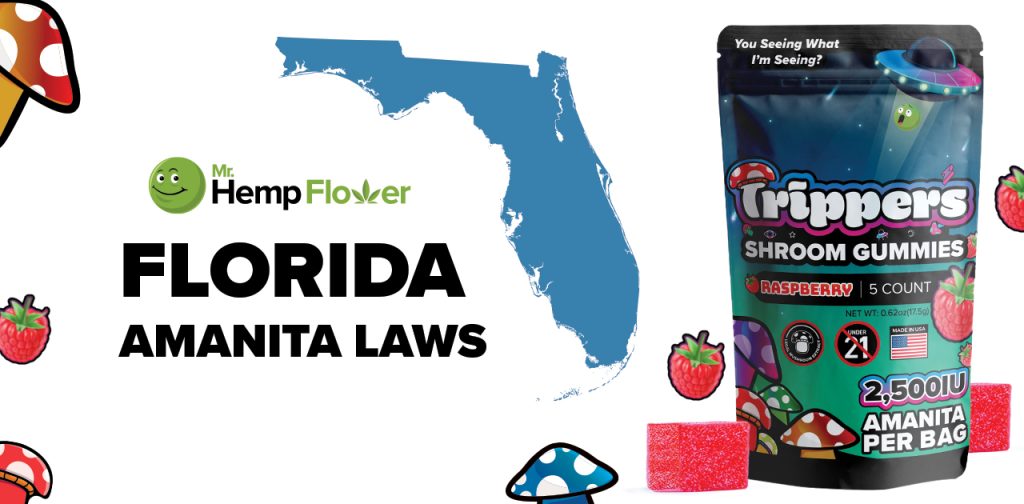As the landscape of cannabis legislation continues to evolve across the United States, an intriguing player has emerged on the scene: mushroom gummies. These chewable mycological treats have piqued the interest of many, but the pressing question remains: Are mushroom gummies legal in Florida? This question opens up a bouquet of possibilities, spurring curiosity and stirring debate. In this article, we will explore the legal status of mushroom gummies, their distinctions from other similar products, and what the future may hold for enthusiasts in the Sunshine State.
To embark on this exploration, it’s essential first to understand what mushroom gummies entail. Primarily, these products often contain extracts from various mushroom species, the most notable being psilocybin mushrooms. Noted for their psychoactive properties, psilocybin mushrooms have long been a subject of fascination, cultural lore, and rigorous debate within legal systems. Yet, not all mushroom gummies contain psilocybin; some may simply feature culinary or medicinal mushrooms like lion’s mane or reishi, which are legal and celebrated for their health benefits.
In Florida, as in many states, the legality of any substance hinges primarily on its classification within state and federal law. Currently, psilocybin is classified as a Schedule I controlled substance under the Florida drug statute. This categorization essentially means that any product containing psilocybin is illegal, placing psilocybin mushroom gummies firmly in the forbidden zone. This presents a conundrum for mushroom aficionados and curious consumers alike: how can one indulge in the purported benefits of mushroom gummies without running afoul of the law?
However, not all mushroom gummies are created equal. Understanding the different varieties is crucial in navigating the murky waters of legality. Gummy sweets that are derived from legal mushrooms, such as chaga or cordyceps, can be found in many health food stores and are often marketed for their purported health benefits. These varieties do not contain any controlled substances and, thus, are entirely legal in Florida.
This divergence opens the door to some playful inquiries: If you find a gummy labeled ‘mushroom extract,’ do you take a leap of faith and sample it, or do you tread with caution? The majority of the gummies currently on the market do not contain psilocybin, but without thorough inspection of the ingredient list, could one unknowingly cross into legally treacherous territory? This prospect emphasizes the necessity of diligence and informed choice for consumers.
With the increasing popularity of mushroom gummies and the broader interest in psilocybin, Florida has witnessed a tapestry of discussions regarding the potential legalization and regulation of psilocybin-based products. As advocates clamor for reform and initiate dialogues on the therapeutic potential of psilocybin, the legal standing of mushroom gummies could very well pivot in the near future.
Faced with this backdrop, it’s worth examining the implications of legalization. Should mushroom gummies containing psilocybin be legalized, it could pave the way for responsible use, much like the burgeoning cannabis market has done for marijuana. Legalization would not only offer consumers a more predictable option but could also catalyze the development of regulations around quality and safety standards—essential elements in protecting public health.
Interestingly, states like Oregon have taken bold stances, with legal frameworks allowing for the regulated use of psilocybin in therapeutic settings. This sets a precedent, inviting Floridians to ponder whether their home state might soon embark on a similar journey. Are we on the brink of a mushroom renaissance in Florida, or will the status quo hold steadfast for the foreseeable future?
As consumers reflect on these questions, awareness around mushroom gummies highlights the importance of education in this domain. The intricate web of legality, health benefits, and societal perceptions necessitates an informed consumer base. It isn’t merely about legality; it’s about making educated decisions rooted in understanding the risks, benefits, and potentials inherent in such products.
Another significant aspect to consider is the potential health benefits of legal mushroom gummies. As previously mentioned, non-psychoactive mushrooms are celebrated for various health properties. Lion’s mane is lauded for cognitive support, while reishi is often praised for its immunity-boosting capabilities. These benefits foster a growing interest in mushroom supplementation as consumers lean towards natural alternatives for well-being. The conversation then shifts from legality to efficacy: can these gummies contribute to a healthier lifestyle, and if so, what is their role?
Ultimately, the evolving legal landscape surrounding mushroom gummies in Florida mirrors larger trends in cannabis and alternative therapeutic modalities. The maturing dialogue surrounding these subjects fosters an atmosphere ripe for change, and with every conversation, Floridians inch closer to understanding their relationship with mushrooms—be it for recreation, health, or simply curiosity.
In conclusion, while psilocybin mushroom gummies remain illegal in Florida, the interest surrounding them is undeniable. Those seeking to indulge should prioritize informed decision-making, ensuring clarity regarding the ingredients before consuming any mushroom-infused products. As discussions around legalization persist, the future could very well illuminate new avenues, creating space for responsible enjoyment of mushroom gummies—legal or otherwise. Until then, the playground of legality serves as both a challenge and an invitation to explore the fascinating world of functional fungi.
